 Around 1.3 million people in the United States are affected by Rheumatoid Arthritis. Rheumatoid Arthritis is a chronic inflammatory disorder that affects joints including those in your hands and feet. The body’s immune system attacks itself causing painful swelling. Some symptoms of Rheumatoid Arthritis are swollen joints, fever, loss of appetite, and fatigue. Other less common symptoms of concern are the skin, blood vessels, eyes, bone marrow, kidneys, nerve tissue, heart, and glands. When you have been diagnosed by your doctor, there is hope for living without horrible symptoms as treatment for Rheumatoid Arthritis can help you feel like yourself again.
Around 1.3 million people in the United States are affected by Rheumatoid Arthritis. Rheumatoid Arthritis is a chronic inflammatory disorder that affects joints including those in your hands and feet. The body’s immune system attacks itself causing painful swelling. Some symptoms of Rheumatoid Arthritis are swollen joints, fever, loss of appetite, and fatigue. Other less common symptoms of concern are the skin, blood vessels, eyes, bone marrow, kidneys, nerve tissue, heart, and glands. When you have been diagnosed by your doctor, there is hope for living without horrible symptoms as treatment for Rheumatoid Arthritis can help you feel like yourself again.
Current Treatments
The current treatment for Rheumatoid Arthritis has been developed to offer excellent care. Blood tests are part of the diagnostic process. It will also be used to keep track of disease progression and how the medication is affecting it. You will be receiving radiographic imaging during diagnosis and throughout treatment to track disease progression, as well. This aids your doctor in making necessary changes to your treatment.
You Have a Part to Play
You will have a part to play in your treatment plan. You will be given educational materials to read and learn what you can do to fight the symptoms and get back to feeling like you again. You will be told how important rest and specific joint-protecting exercises can be used to help relieve symptoms.
Medications
There are also several medications to be used throughout Rheumatoid Arthritis treatment. Here are some examples of treatments used.
- NSAIDs (Non-Steroidal Anti-inflammatory Agents) – These help to quickly relieve pain and inflammation. Over-the-counter examples of these are Motrin, Aleve, and Advil. Prescription NSAIDS are ETC, Relafen, Daypro, and Lodine.
- DMARDS (Disease Modifying Anti Rheumatic Drugs) – These are used for long-term therapy and it can take weeks for them to kick in and relieve symptoms. These are prescription medications. Examples of DMARDs are ETC, Drava, Enbrel, Humira, and Remicade.
- Corticosteroids – These are steroids given to quickly relieve symptoms while waiting for the DMARDS to kick in. Prednisone is the most commonly used steroid.
Therapy
As part of your treatment, you will also have to attend occupational and physical therapy. The therapists will help you figure out ways to do everyday activities without making your Rheumatoid Arthritis symptoms worse. They can show you products that you can use daily to lessen the deterioration of your joints. This will help relieve your painful symptoms during your day.
Surgical Options
If your disease is advanced and the medications are not helping, surgery can be used as a last-chance option. This is usually avoided due to the multiple risks it presents. If surgery is necessary, there are some options…
- Total joint replacement is given when damaged joints cannot be fixed and will need to be removed and replaced with plastic or metal parts.
- Joint fusion can help to fuse the joints together. If tendons are inflamed, they can tear or become loose. They can be repaired during surgery to reduce the pain.
- A synovectomy is when the lining of the joints is removed to increase the flexibility of the joint and lessen the pain.
Different specialists prescribe different treatments according to their areas of expertise. They also take into consideration your specific case.
It is important to get proper treatment soon after your diagnosis of Rheumatoid Arthritis. If treatment is delayed, it will take longer to relieve your symptoms.
Contact Us (859-331-3100) For More Information or to Request an Appointment
—
 About Tristate Arthritis and Rheumatology
About Tristate Arthritis and Rheumatology
Tristate Arthritis and Rheumatology is the first and largest Rheumatology practice in the Northern Kentucky area. Founded by Dr. Arthur Kunath in 1986, our rheumatology practice now consists of six doctors who are board certified in both Internal Medicine and Rheumatology and a Physician Assistant. Patients see one doctor (except in emergencies), thereby assuring continuity of care and an individualized doctor-patient atmosphere giving the physician the ability to establish personalized and detailed relationships. Our doctors have received numerous awards, including being listed as “Top Doctors” in Cincinnati Magazine, receiving the Patient’s Choice Award, the Most Compassionate Doctor Award, and the American College of Rheumatology’s “My Doc Rocks” award.


